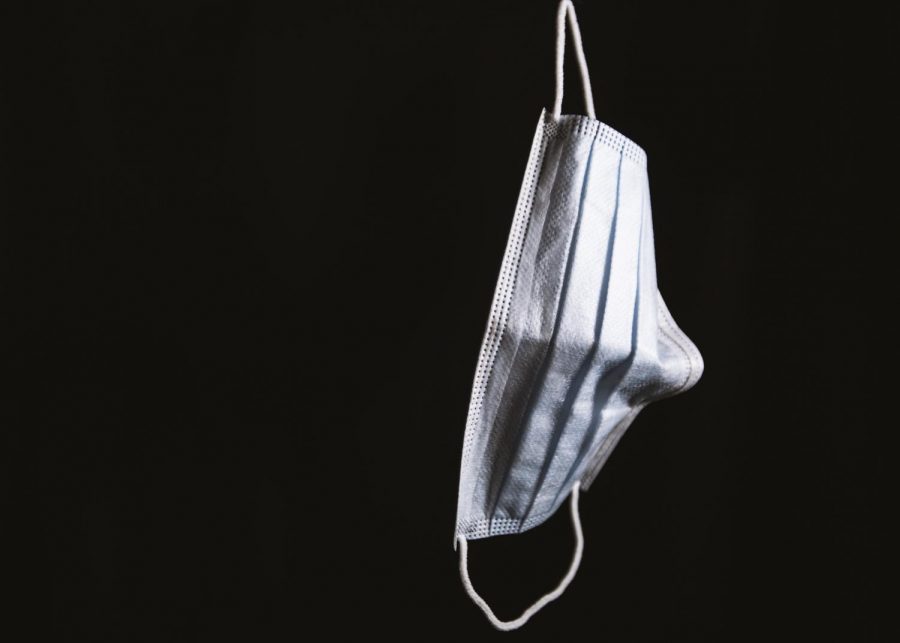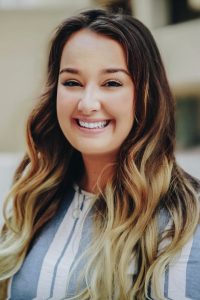The Impact of COVID-19 and the Future It’s Creating
August 12, 2020
Since its initial outbreak in Wuhan, China — the COVID-19 pandemic has greatly impacted every aspect of life and will continue to do so for an indeterminate period of time.
According to economics professor Marshall Steinbaum, the missteps taken at the beginning of the outbreak will have long-lasting effects on the public, such as failing to establish measures that would have enabled everyone to come out of lockdown while still prolonging the effort to contain the virus.
“So now we’re basically looking at an uncontained pandemic. Where everybody going to work is exactly what spreads the virus, and yet people need to go to work in order to make a living. And those two things basically can’t be reconciled,” Steinbaum said.
Steinbaum said the most important lesson learned about the economy is that there needs to be a way to pay people not to go to the workplace to suppress the virus.
“The people who are required to go to work to make a living are the ones who have been most susceptible. I think that tells us a lot about how the labor market works — who has the ability to control where and how they work. Versus who’s at somebody else’s discretion and can be made to enter an unsafe environment for themselves and their families, because the alternative is not being able to eat or to care for your family,” Steinbaum said.
Steinbaum is concerned the pandemic will exacerbate bad trends in the world of higher education, specifically the defunding of public institutions as states need to cut their budgets. This could result in an increase in the cost of higher education, which most students cannot meet other than through student debt that takes a lifetime to pay off.
“That’s obviously something that’s already pretty much ongoing in the higher education world — people need more and more degrees, those degrees are more and more expensive … If states cut higher education budgets more because they have lost out on revenue due to the pandemic, then that’s going to get even worse,” Steinbaum said.
Rebecca Bateman, an undergraduate research assistant working to develop models about the pandemic, believes that the future of the virus is based on the response of states and individuals.
“In St. George, where I live now, the Dixie Regional Medical has recently neared their ICU capacity, and a lot of people down here don’t know that,” Bateman said.
Bateman spoke to the difficulties of adjusting to some new aspects of life the pandemic has brought into play, such as quarantine and the wearing of a mask. She said she sees wearing a mask as a way to show that she cares about others.
“I have been trying to take this opportunity to be more aware of people outside of myself,” Bateman said.
Lindsay Keegan, an infectious disease epidemiologist at the University of Utah, said the likelihood of an outbreak in the fall depends on a number of factors.
“We have had very few COVID-19 infections thus far and consequently we have very little population immunity. So it follows that as people begin mixing more broadly, there will be a rise in infections. How we implement mixing (classroom size, mask wearing, or other factors) can greatly impact how the fall looks with respect to COVID infections,” Keegan said.
According to the Utah Department of Health, as of July 12, the state of Utah has 29,484 cases and 215 people who’ve passed away due to the virus.
Professor Emeritus L. Jackson Newell, who teaches social ethics and educational leadership philosophy has over 60 years of teaching experience. Newell compared the United States’ response to the outbreak to previous crises that the nation has navigated through.
“Generally in times of crisis people pull together and we have in this crisis the mind-boggling experience of responding to the epidemic in ways that divide people,” Newell said, referring to the politicization of wearing masks.
According to the Center for Disease Control, it is estimated that about 500 million people or one-third of the world’s population became infected with the Spanish flu.
Newell drew several comparisons between COVID-19 and the 1918 Spanish flu pandemic, during which his father was alive.
“A more agricultural society then, many more people lived in rural areas and produced their own food, and even in cities people were not accustomed to restaurant dining, Starbucks sipping, and megastores. They adjusted more easily than we do, and they understood so much less about contagion that social distancing wasn’t a priority,” Newell said.
Dr. Newell also drew comparisons between the historical contexts of both pandemics.
“Rather than coming out of an era of great national sacrifice (after World War I), we’re actually coming into an era of great national awakening … We have a reckoning that we’re in the middle of right now and I think we haven’t begun to see the full extent of it,” Newell said.
Newell said that America has been drifting for a long time in the direction of selfishness and callousness, and the idea that a national crisis has been used by leadership as a way to gain political advantage instead of making sacrifices in the interest of society as a whole is unprecedented.
“I can’t think of an instance in American history when a grave national peril was faced, and the ethic being expressed by the leadership of the country was not to bind up our wounds and help each other, but instead finger pointing,” Newell said.
Newell also sees positive changes being brought in society due to COVID-19, namely compassion being awakened in people due to the fragility people all feel about in their own health and lives. He said the disproportionate economic effects and health effects across our population play into this as well. According to Newell, it’s a sentiment that hasn’t been felt in a long time.
“It’s truly exciting to me to think that, at least since 1968, this is one of the most propitious years in American history. No matter what happens this fall, you’re going to be telling your grandchildren about it, and dealing with the consequences of it, whatever they are,” Newell said.








